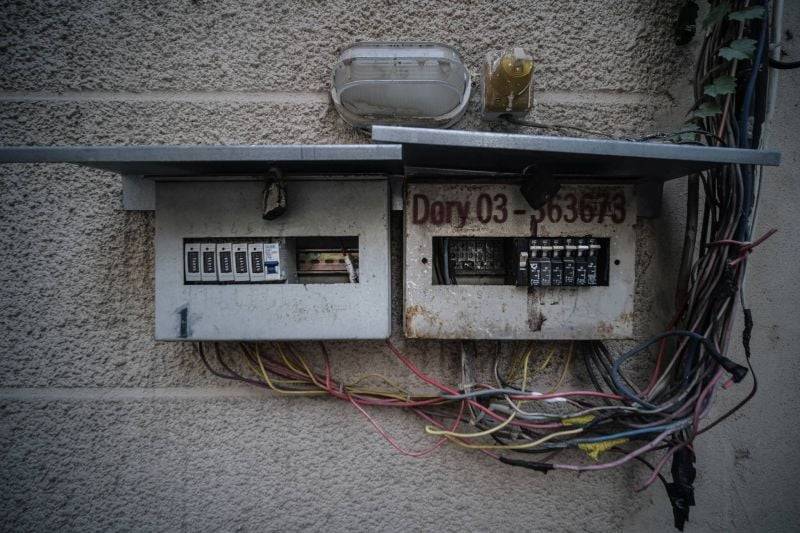
An electrical panel in Lebanon. (Credit: João Sousa / L'Orient Today)
BEIRUT — While the minimal increase in the hours of electricity supply by Electricité du Liban remains pending following the receipt of 30,000 tons of diesel, the situation is still such that the population is forced to rely on the owners of private generators to get power, and therefore pay a high price for their electricity.
The price per kilowatt-hour (kWh) produced by these generators during October — and which must be charged to subscribers — was set on Friday by the Ministry of Energy and Water at LL17,381, up 6.31 percent from the previous month's rate (LL16,350). In accordance with the applied modalities, this tariff, increased by 10 percent in mountainous (more than 700 meters above sea level) and/or rural areas, rises to LL19,119 per kWh.
The October tariff was calculated based on the average price of fuel oil estimated at LL860,700 per 20 liters, against the backdrop of a global increase in fuel prices in the wake of the Russian-Ukrainian conflict that broke out last February, and the collapse of the Lebanese lira against the dollar. This level represents an increase of 6.33 percent compared to the previous month (LL809,467 per 20 liters of fuel oil).
As it does every month, the Ministry also accounted for the additional costs incurred by generator operators (changing oil, filters and other parts), as well as the depreciation cost of the generator itself, using an exchange rate of LL38,990 to the dollar, compared to LL36,747 in September. These rates also include a 10 percent markup for the operators.
To calculate the total bill, the price per kWh must be multiplied by the consumption. In addition to the total bill, a flat rate is added that varies according to the maximum current delivered in amperes (A). For a maximum current of 5A, the monthly flat rate has been increased by LL5,000, to LL125,000 from LL120,000 the previous month. Similarly, the monthly rate for 10 amps has also been increased to LL245,000 from LL240,000 the previous month. The department is also imposing a LL120,000 surcharge for each additional 5A from 10A, the same level as the previous month.
The Ministry has also maintained the specificities introduced for elevators and for common parts of buildings connected in three-phase, indicating that their fixed tariffs will be calculated on the basis of a single-phase installation. For example, if the elevator and common areas have three times a 15A three-phase circuit breaker, their flat rate will be calculated on the basis of a 15A capacity, not 45A, i.e., LL365,000, not LL1,085,000.
In this context, the Ministry of Energy and Water has once again called on generator owners to comply with the decision of the Ministry of Economy and Trade regarding the obligation to install meters.
While this obligation, which was implemented in 2018, is imposed on all members of this sector, and the exclusion of which is illegal, due to the chronic and increasingly accentuated deficiencies of the official supplier Electricité du Liban, a significant portion of generator owners have refused to comply and continue to apply flat rates, often aligned with those of the Ministry and sometimes requiring payment in dollars.